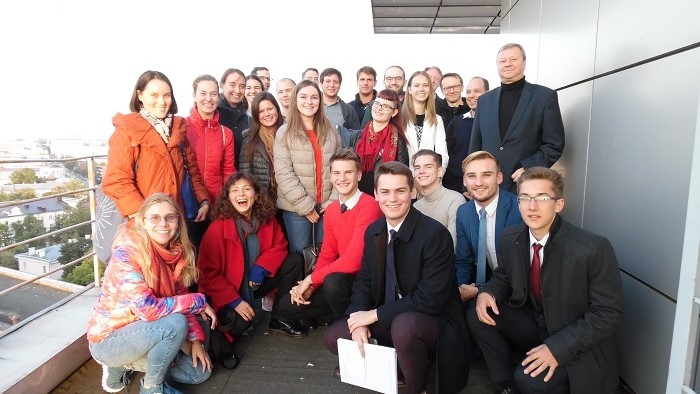Exchanging ideas with BSU Minsk
Three thematic blocks structured the summer school: Identity and History, Belarus in the International System and Debates in Epistemic Communities. Professor Martin Schulze Wessel chaired the first discussion about memory and identity in Belarus. The second block consisted of several different topics, which were discussed in detail and peppered with anecdotes. For example, the students talked about the transport of nuclear reactors, the development of missiles and Chinese battery factories.
In particular, we dwelt on the 1990s in Belarus, the caesura of 1995/96 (when President Lukashenka consolidated his power using two controversial referendums), the incompleteness of the reforms introduces by Gorbachev and the incomplete change of elites. The debate about epistemic communities included a discussion about the possibility of a unique “Russian school” of international relations.
Memory in the “model city of socialism”
Larissa Korogodova’s guided tour gave the students of the Elite Graduate Program "East European Studies" fascinating insights into Minsk, the “model city of socialism”. They learned about the architecture of socialist realism and the reconstructed old town, as well as the religious position of a city straddling Catholicism, Orthodoxy and Judaism.
A visit to the residence of the German ambassador in Belarus, Manfred Huterer, gave the students an understanding of diplomacy in an authoritarian regime.
In accordance with the first thematic block, a very important aspect of the summer school was the culture of memory in Belarus. The students met local actors and visited memorials and places of remembrance. They considered the international meaning of Malyi Trostenets and the different experiences of terror and violence represented by the memorial sites of Khatyn and Kurapaty.
Text: Maximilian Fixl, Elite Graduate Program "East European Studies"


